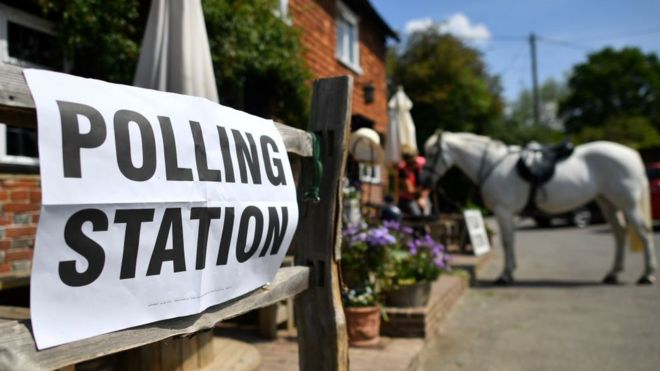 GETTY IMAGES
GETTY IMAGES
Now that MPs have rejected the government's three-day timetable for getting the Brexit bill through Parliament, the legislation is officially in "limbo".
If the EU confirms a Brexit delay until the new year, the prime minister has said he will push for a general election.
So how soon could an election happen and why does Boris Johnson want one?
Why does Boris Johnson want an early election?
The next election isn't due until 2022 - but the prime minister wants an early election to try to restore the Conservative Party's ruling majority in the Commons.
At the moment, if every opposition MP voted against the government, it would lose by 45 votes.
While calling an early election carries risks, Mr Johnson would hope to end the political stalemate and make it easier to deliver Brexit.
How quickly can an election happen?
Once an election is called, there has to be a gap of at least five weeks before polling day.
That's because the law requires Parliament to dissolve 25 working days before the election.
At this point, politicians stop being MPs and campaign for re-election, if they choose to stand again.
Traditionally, UK elections are held on a Thursday. So, if an election were triggered before Thursday 24 October, the earliest date the poll could take place is Thursday 28 November.
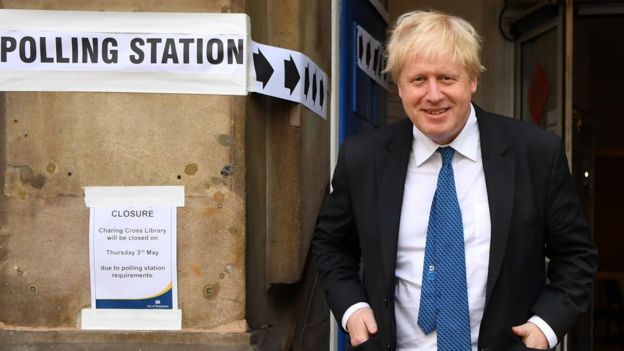 GETTY IMAGES
GETTY IMAGESWhy hasn't an election already been called?
In September, the prime minister twice challenged MPs to hold an early election - only to be rejected both times.
Mr Johnson can't just decide to hold an early election. He needs the support of two-thirds of MPs - at least 434. This is a legal requirement, set out under the Fixed-term Parliaments Act.
Labour says it will support an early election, but only once the risk of a no deal Brexit is "off the table."
How might the Brexit legislation trigger an early election?
The government has introduced the Brexit legislation, known as the Withdrawal Agreement Bill, to Parliament. It failed to fast-track its progress, which means it's very unlikely the Brexit legislation will be able to complete its passage before the 31 October deadline.
If the EU confirms a Brexit delay until the 31 January, the government has said it would abandon the Brexit bill altogether and could try to hold an election before Christmas.
This could happen in a number of ways:
A vote under the Fixed-term Parliaments Act
The simplest way for the government to trigger an early election would be to call another vote under the Fixed-term Parliaments Act.
However, this route would still require at least two-thirds of MPs to agree to it.
If it passed, Mr Johnson would then recommend the date of the election to the Queen.
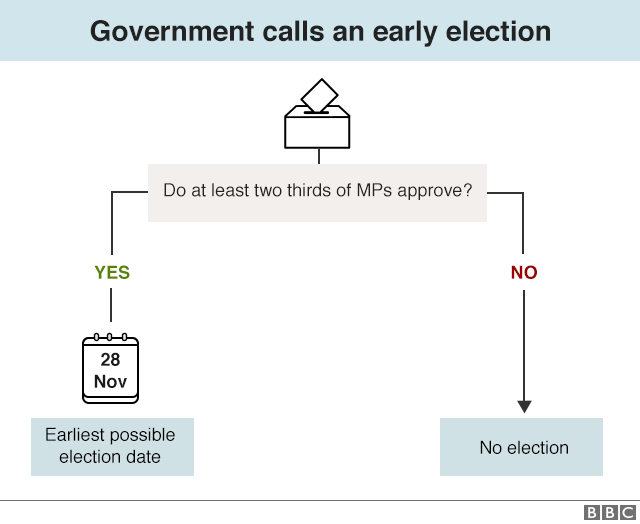
Bypass the Fixed-term Parliaments Act
If the government felt it couldn't reach the two-thirds threshold, it may try to get round the requirement altogether.
It could do so by introducing a very short law that calls for an election and adds "notwithstanding the Fixed-term Parliaments Act".
The advantage of this route - from the government's point of view - is that it would only require a simple majority of MPs to support it rather than two-thirds.
But it would also need to clear all stages in the House of Commons and the House of Lords. That means there's a risk the law could be altered if MPs or peers propose changes to the wording.
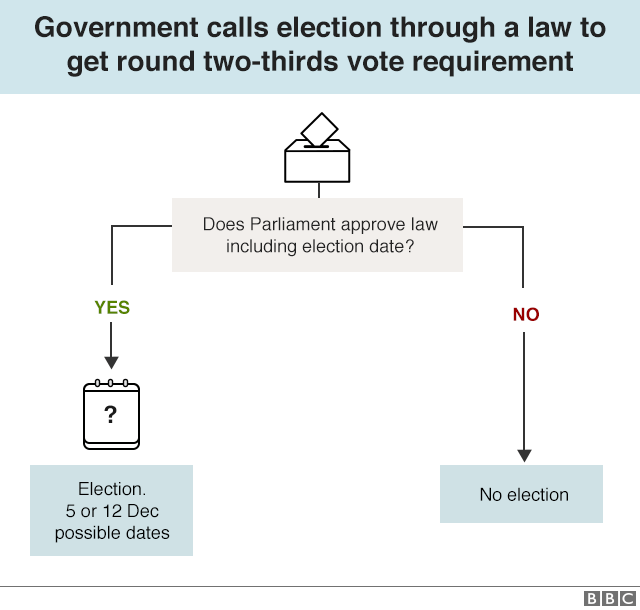
Labour calls a motion of no confidence
Rather than the government, it could be the opposition that triggers an early election. This could happen if Labour proposed a no-confidence vote.
This would give all MPs a vote on whether they wanted the current government to continue.
Only a simple majority would be needed.
If it succeeded, opposition parties would be allowed two weeks to come together to try to form an alternative government. If this happened, Mr Johnson would be expected to resign and a new prime minister would take over.
But if nothing was resolved during those two weeks, the Fixed-term Parliaments Act says a general election would be automatically triggered.
Under this scenario, an election would take place at least seven weeks after a no-confidence vote was passed. That's because two weeks would be taken up by opposition parties trying to form a government, plus a further five weeks to dissolve Parliament for the campaign.
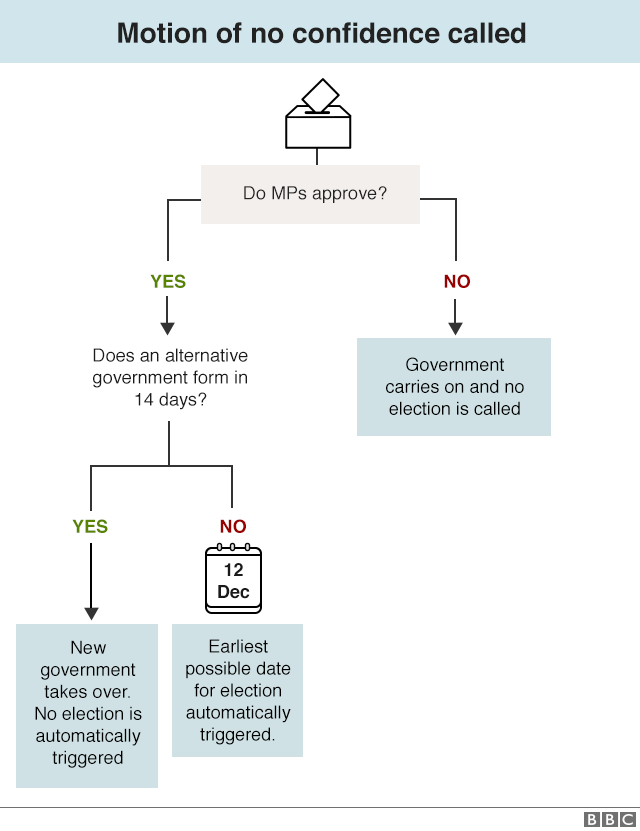

Government calls a motion of no confidence in itself
If the government felt it had no other way of forcing an early election, it could in theory call a motion of no confidence in itself.
In order for it to succeed, Conservative MPs would have to vote to bring down their own government.
While such a tactic might appear extreme to outside observers, it would trigger an automatic early election - as long as opposition parties failed to form an alternative government within the 14 days.
As such, this option would be extremely high risk.
Brexit explained
Brexit - British exit - refers to the UK leaving the EU. A public vote was held in June 2016 to decide whether the UK should leave or remain.
- A simple guide to Brexit
- Could a no-deal Brexit still happen?
- What is in Boris Johnson's Brexit plan?
- What will happen to the EHIC after Brexit?
https://www.bbc.com/news/uk-politics-49004486